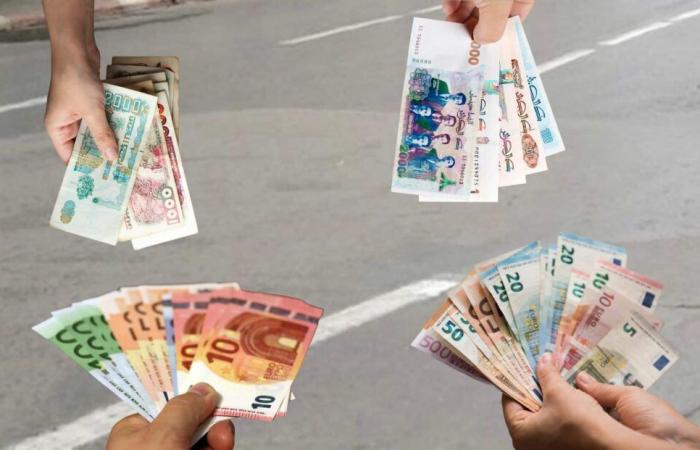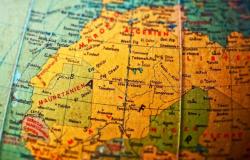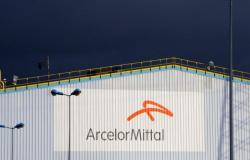The exchange rate of the Algerian dinar experienced changes on the black market this Tuesday, December 31. Indeed, the euro is rising, while the dollar and the pound sterling are slightly falling against the local currency.
On this last day of 2024, the euro shows a clear recovery on the black market in Algeria. It is trading today at 244 dinars for purchase and 248 dinars for sale, marking a notable increase compared to previous days. This renewed interest in the euro coincides with expectations linked to the increase in the tourist allocation planned for January 2025. At the same time, the American dollar is down slightly, reaching 231 dinars for purchase and 234 dinars for sale, while the pound sterling, still very popular, is trading around 283 dinars for purchase and 290 dinars for sale.
A growing gap with official exchange rates
These parallel market figures contrast sharply with the official rates published by the Bank of Algeria. The euro is maintained at 140.91 dinars for purchase and 140.94 dinars for sale, well below the values practiced on the black market. Likewise, the American dollar is officially quoted at around 129 dinars, and the pound sterling at around 161 dinars. This growing gap reflects the strong pressure on the Algerian dinar, fueled by high demand for foreign currencies, particularly for commercial transactions and travel.
Several factors explain these significant increases in the euro on the black market. The announcement of the upcoming increase in the tourist allowance from 100 to 750 euros has led to strong demand for the euro. This measure, intended to support Algerian travelers, paradoxically exacerbated speculation on the parallel market. Furthermore, economic uncertainty and expectations of new monetary reforms push currency traders to hold on to their currencies, limiting supply on the black market.
The impact of exchange rate fluctuations on citizens and businesses
These fluctuations have direct consequences on the daily lives of Algerians. Travelers now have to pay more for their currencies, increasing their travel costs. Savers who keep their savings in foreign currencies see the value of their reserves fluctuate, making financial strategies more uncertain. On the side of businesses, particularly importers, the gap between the official rate and the black market considerably increases costs, affecting profitability and, by extension, the prices of imported goods.
In summary, the rise of the euro against the Algerian dinar in the black market illustrates the growing tensions on the national economy. As 2025 approaches, the government's economic and monetary decisions will be crucial to stabilize the situation and reduce the impact of these fluctuations on citizens and businesses.






